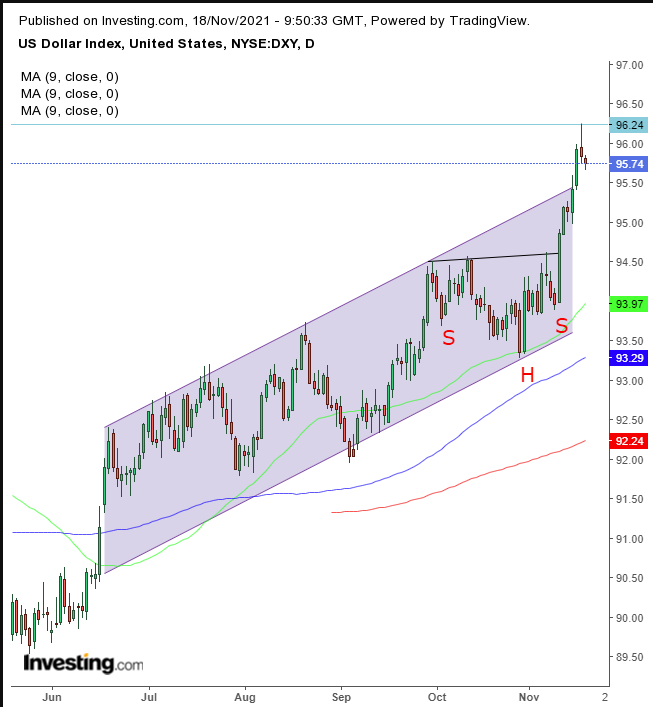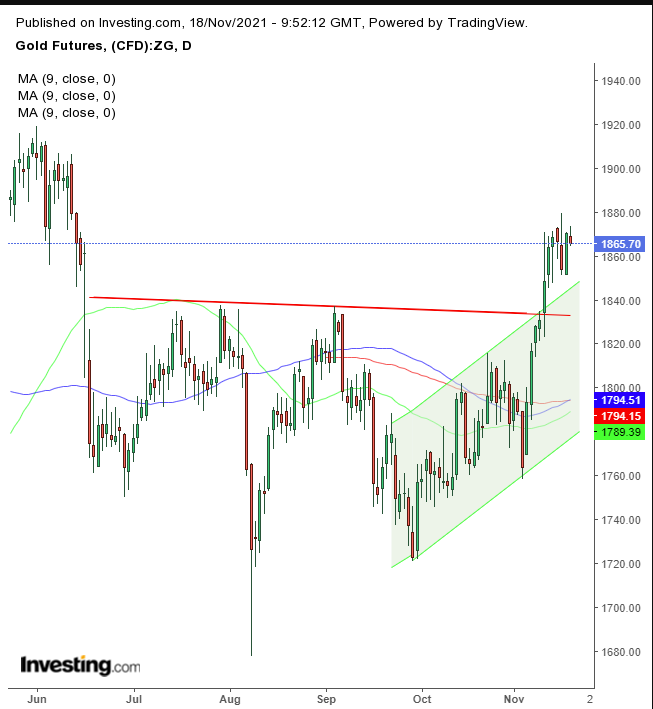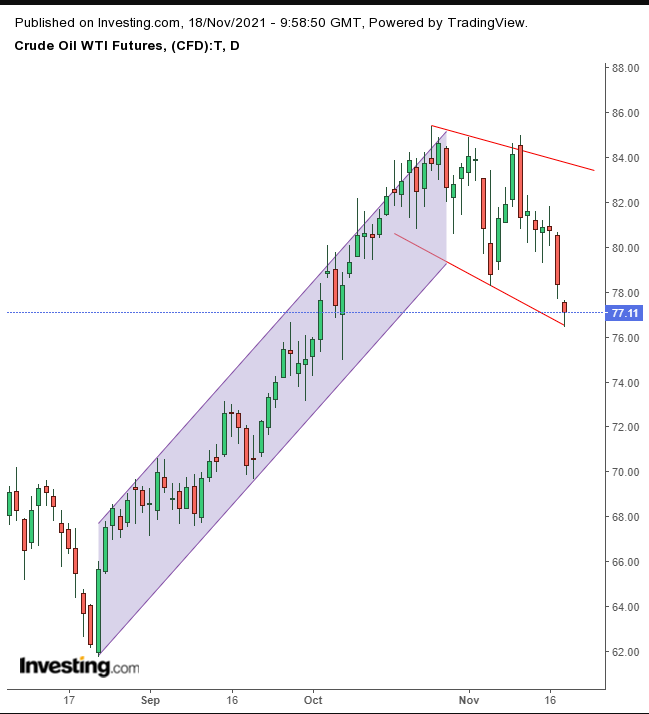- Chinese tech stocks sell off pressuring regional markets
- Oil plunged on prospects major countries may tap into reserves
- Bitcoin headed lower
Key Events
After major US indices closed lower on Wednesday, futures on the Dow, S&P, NASDAQ and Russell 2000 were trading higher on Thursday as stocks in Europe extended a string of records on the heels of a successful earnings season.
A selloff in oil and metals dragged commodity shares lower.
Global Financial Affairs
The STOXX 600 Index climbed this morning, to post its seventh consecutive record. However, after lagging yesterday, today it was the travel and leisure sector that led the index higher. Although the index's gains on Thursday have been small, it's the 17th advance in the past 19 days.
Oil-related shares were some of the biggest losers on the pan-European benchmark after it was reported that the US had asked large oil consuming nations, including China, to draw on emergency crude reserves in a coordinated effort to ease spiking prices.
Miners also fell 0.8%, as London copper prices dropped to monthly lows, dragged down by swelling stockpiles.
Most Asian benchmarks ended in the red. China's Shanghai Composite shed 0.47% at the end of the day as tech stocks sold off, including internet giant, Alibaba (NYSE:BABA) which slid 5%. There are also growing local concerns that rapidly rising inflation will lead to tighter monetary policy sooner than originally expected.
Japan's Nikkei 225 declined 0.3% after recent government reports demonstrated that COVID-19 is still damaging the country's economy, including a supply crunch in computer chips which are required for automobiles and are vital to the world's third-largest economy.
Moreover, recent government restrictions, including closing restaurants and limiting numbers in theaters and venues, put in place to quell the spread of the coronavirus, dented consumer spending.
During Wednesday's New York session stocks fell, pressured by the ongoing narrative that central banks might jump the gun on raising interest rates to control spiraling inflation. Investors moved capital into haven sectors after data, including building permits and housing starts, showed homebuilders were stuck on projects due to a spike in material costs and ongoing labor shortages.
Target (NYSE:TGT) beat, but sold off after warning that rising prices will likely hurt future profits for the retail giant. This warning was the opposite of the outlook provided by Walmart (NYSE:WMT) and Home Depot (NYSE:HD) just one day earlier. Large retailers underscore the importance of these companies as barometers of consumer spending, which makes up a whopping 69% of the US economy.
Shares in Cisco Systems (NASDAQ:CSCO), the most prominent computer networking equipment maker, dropped. Its revenue numbers failed to meet expectations due to chip shortages and it said constraints were likely to continue.
As markets continue to trade around record highs the trend is still very much rising. However, we expect continued volatility due to inflation concerns, supply chain pressures, labor shortages as well as potential tensions between the US and China.
Yields on the 10-year Treasury were little changed, after falling yesterday below 1.6%.
The dollar also fell for a second day.

After Wednesday's volatility, the greenback extended its descent, forming a cross between a shooting star and a high wave candle. Both carry bearish implications. However, the USD is due support at the top of a rising channel, through which it broke due to an H&S bottom.
Gold retreated after yesterday's climb which saw the yellow metal reach its highest level since early June.

Recently, the price completed an H&S bottom.
Bitcoin sold off again after Wednesday's respite. The move puts the token's price back below $60,000. A close below $57,000 will top out the leading cryptocurrency.
Oil, like related energy shares, sold off.

While oil has fallen out of its rising channel, beware. It might climb back to the top of its falling channel. It's already risen off its lows in what could prove to be a hammer.
Though many institutions and organizations provide oil market outlooks forecasting supply and demand statistics, certain factors are more critical than others.
Up Ahead
- UK retail sales are published on Friday.
- On Friday Canada reports retail sales figures.
- The Fed's Richard Clarida speaks at Asia Economic Policy Conference on Friday.
Market Moves
Stocks
- The STOXX 600 rose 0.1%
- Futures on the S&P 500 advanced 0.3%
- Futures on the NASDAQ 100 added 0.5
- Futures on the Dow Jones Industrial Average Index climbed 0.1%
- The MSCI Asia Pacific Index fell 0.5%
Currencies
- The Dollar Index gained 0.2%
- The euro rose 0.2%
- The Japanese yen rose 0.1%
- The British pound climbed 0.01%
Bonds
- The yield on US 10-year Treasuries was little changed
Commodities
- WTI crude fell 1.5% to $77.12 a barrel
- Spot gold rose declined 0.2% to $1,864.11
